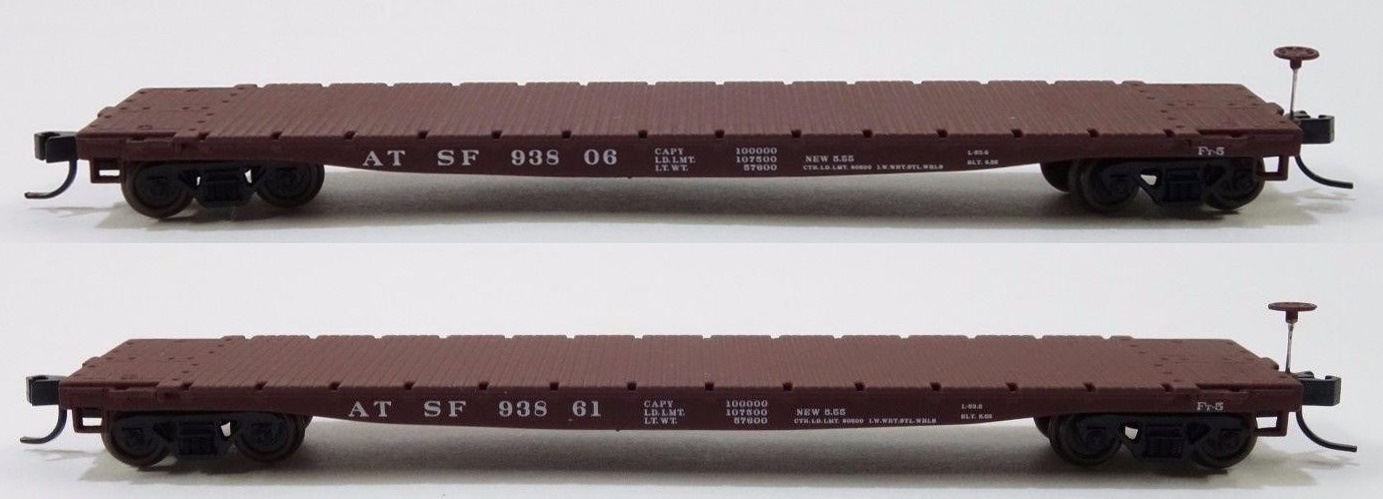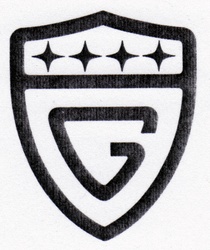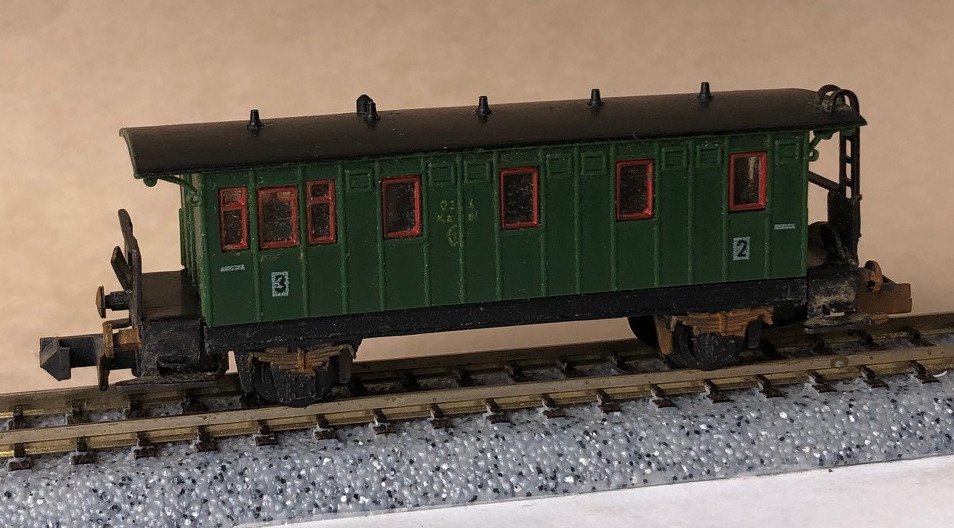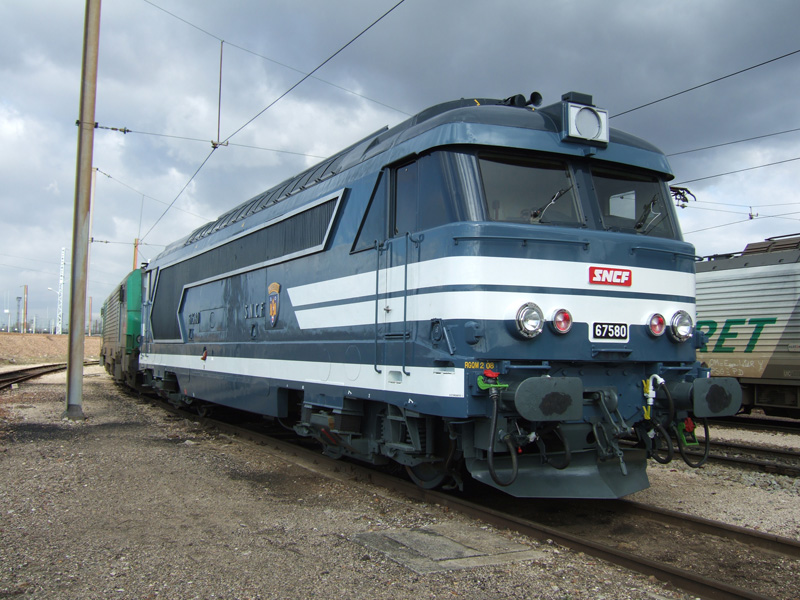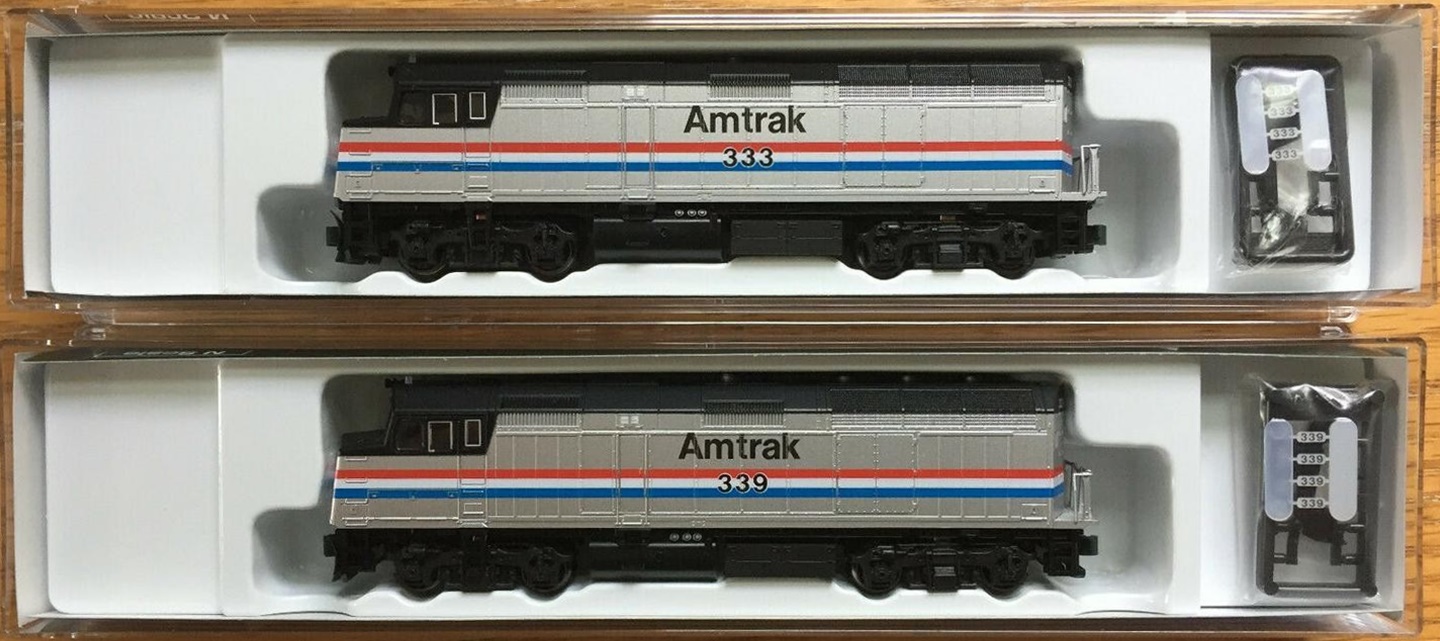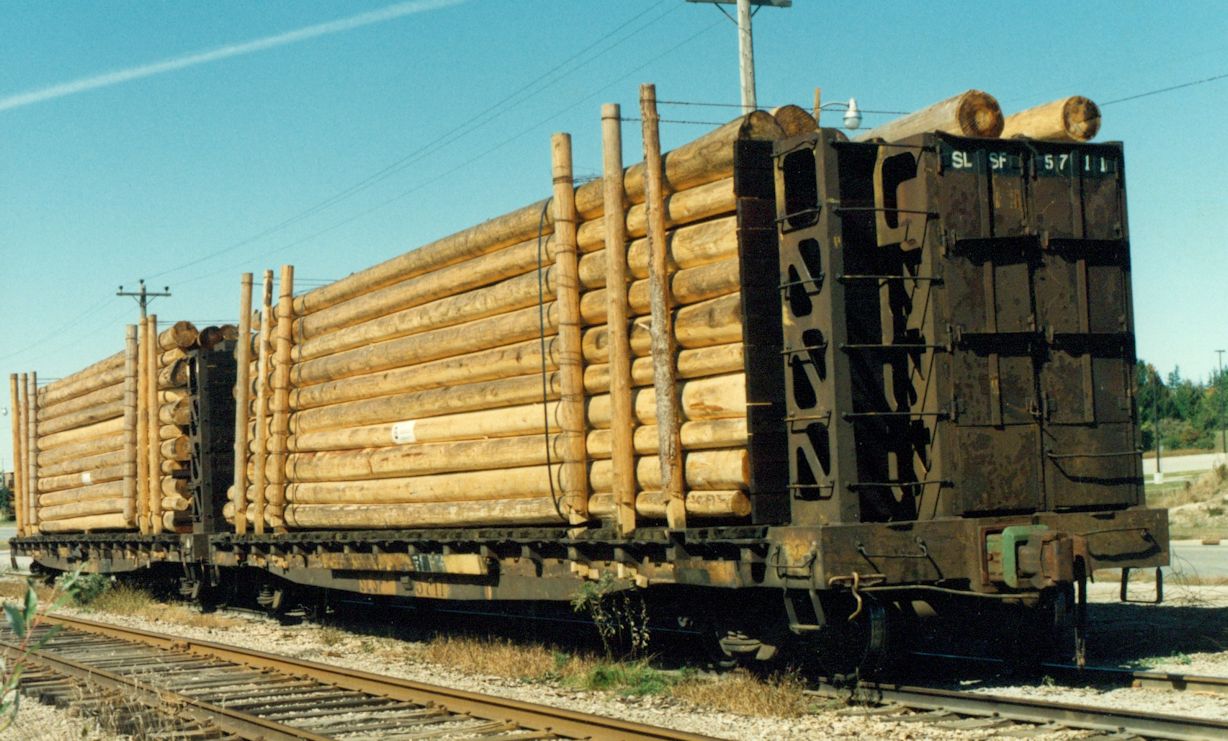Model Information: Model introduced in the mid-1990s, and re-run, with Accumate couplers, in 2007 and 2011.
These models are made of cast metal and include optional bulkheads (as noted) to match prototype practice. So two varieties are available - with and without bulkheads.
In the first run of these cars, three (3) road numbers were offered under the same stock number. In the 2007 run, 3 road numbers were offered as well, but one as a single item and the two others in a 2-pack with a different stock number.
Atlas purchased this tooling from Walthers' N scale range in 2018, and decided to re-run the model in 2019, first in its Bulkhead Flat Car version, as a 48' GSC (General Steel Industries) Bulkhead Flat Car, and then in its bulkhead-less version as 53' 6" flat car. 48-foot represents the interior-length whereas the total length of the car is 53-foot 6-inch, hence Walthers referring to them as 54' GSC flat cars.
One of the most common flat cars in service from the 1950s to the present. These steel cars were considered strong enough to withstand the strain of intermodal service, and their 53' 6"-length was ideal for 32' and 35' trailers. When fitted for piggyback service, the cars were equipped with a hitch and rub rails, numerous tie-downs and bridge plates. In later years, a new hitch replaced the tie-downs.
These models are made of cast metal and include optional bulkheads (as noted) to match prototype practice. So two varieties are available - with and without bulkheads.
In the first run of these cars, three (3) road numbers were offered under the same stock number. In the 2007 run, 3 road numbers were offered as well, but one as a single item and the two others in a 2-pack with a different stock number.
Atlas purchased this tooling from Walthers' N scale range in 2018, and decided to re-run the model in 2019, first in its Bulkhead Flat Car version, as a 48' GSC (General Steel Industries) Bulkhead Flat Car, and then in its bulkhead-less version as 53' 6" flat car. 48-foot represents the interior-length whereas the total length of the car is 53-foot 6-inch, hence Walthers referring to them as 54' GSC flat cars.
One of the most common flat cars in service from the 1950s to the present. These steel cars were considered strong enough to withstand the strain of intermodal service, and their 53' 6"-length was ideal for 32' and 35' trailers. When fitted for piggyback service, the cars were equipped with a hitch and rub rails, numerous tie-downs and bridge plates. In later years, a new hitch replaced the tie-downs.
Prototype History: General Steel Castings (GSC) made the underframes for the Pennsy F30. They decided to create their own product by modifying the Pennsy design. They stretched the design to 53 foot, 6 inches and made the entire body a single casting. The resulting car was manufactured starting in the early 1950s was initially sold as a kit to railroads and only late offered as a complete ready-to-run car. The car was offered in both bulkhead and non-bulkhead versions based on customer requirements.
One of the most common of all flat cars, these rugged designs were in service from the 50s to the 90s and a few still operate today. Built around a large one-piece steel casting, the prototypes could handle a wide range of cargo and were often rebuilt for piggyback loading. These cars are equally at home hauling machinery, steel slabs and more. They were also fitted with bulkheads and handled loads such as lumber and pipe, and a few roads even outfitted them with log bunks for hauling freshly cut timber.
One of the most common of all flat cars, these rugged designs were in service from the 50s to the 90s and a few still operate today. Built around a large one-piece steel casting, the prototypes could handle a wide range of cargo and were often rebuilt for piggyback loading. These cars are equally at home hauling machinery, steel slabs and more. They were also fitted with bulkheads and handled loads such as lumber and pipe, and a few roads even outfitted them with log bunks for hauling freshly cut timber.
Road Name History: The Atchison, Topeka and Santa Fe Railway (reporting mark ATSF), often abbreviated as Santa Fe or AT&SF, was one of the larger railroads in the United States. Chartered in February 1859, the railroad reached the Kansas-Colorado border in 1873 and Pueblo, Colorado, in 1876. To create a demand for its services, the railroad set up real estate offices and sold farm land from the land grants that it was awarded by Congress. Despite the name, its main line never served Santa Fe, New Mexico, as the terrain was too difficult; the town ultimately was reached by a branch line from Lamy.
The Santa Fe was a pioneer in intermodal freight transport, an enterprise that (at one time or another) included a tugboat fleet and an airline (the short-lived Santa Fe Skyway). Its bus line extended passenger transportation to areas not accessible by rail, and ferryboats on the San Francisco Bay allowed travelers to complete their westward journeys to the Pacific Ocean. The ATSF was the subject of a popular song, Harry Warren & Johnny Mercer's "On the Atchison, Topeka and the Santa Fe", written for the film, The Harvey Girls (1946).
The railroad officially ceased operations on December 31, 1996, when it merged with the Burlington Northern Railroad to form the Burlington Northern & Santa Fe Railway.
Read more on Wikipedia.
The Santa Fe was a pioneer in intermodal freight transport, an enterprise that (at one time or another) included a tugboat fleet and an airline (the short-lived Santa Fe Skyway). Its bus line extended passenger transportation to areas not accessible by rail, and ferryboats on the San Francisco Bay allowed travelers to complete their westward journeys to the Pacific Ocean. The ATSF was the subject of a popular song, Harry Warren & Johnny Mercer's "On the Atchison, Topeka and the Santa Fe", written for the film, The Harvey Girls (1946).
The railroad officially ceased operations on December 31, 1996, when it merged with the Burlington Northern Railroad to form the Burlington Northern & Santa Fe Railway.
Read more on Wikipedia.
Brand/Importer Information: Wm. K. Walthers, Inc., was founded in Milwaukee in 1932 -- but really, it started years earlier, when seven-year-old Bill Walthers got his first taste of the hobby with a small, wind-up toy train for Christmas. He continued with the hobby and eventually had an attic layout comprised primarily of his own scratch-built creations. After he wrote a series of articles on building train control and signaling systems, he got so many letters from other modelers that he began manufacturing them. The first ad (in the May issue of The Model Maker) offered a 24-page, 15c catalog that listed rail, couplers, and electrical supplies. Sales were over $500.00 for the first year, and the fledgling company was off to a strong start.
Within five years, Walthers had grown so much that larger quarters were needed. Space was found on Erie Street, where everything -- from milled wood parts to metal castings to decals -- was made in-house. 1937 also saw a new line in HO Scale, featured in its own catalog. Bill brought operating layouts to the 1939 World's Fair, which gave the hobby a big boost. Soon, though, the growing possibility of war overshadowed these successes, and supplies were becoming increasingly difficult to obtain.
During the war, model manufacturers were ordered to stop production in order to conserve critical metal supplies. Walthers produced what it could from nonessential materials. A series of ads in 1943 saw Bill literally scraping the bottom of a barrel! The postwar boom meant rapid growth for the hobby; however, small homes and new families left no room for O scale layouts, and many modelers moved to HO Scale.
The next twenty years brought great change. In 1958, Bill retired and his son Bruce took over. Just as full-size railroads were being hard-hit by new technology, so too were model railroads. Leisure time was spent in front of the TV set, not the train set. In 1960, Walthers became a full-line distributor of other manufacturers' products while continuing expansion of the Walthers lines. By the start of the 1970's, business was booming again, and Bruce's son Phil joined the company.
Expansion and diversification continue under Phil's tenure. The establishment of the Walthers Importing Division added several international lines. The manufacturing plant was modernized. Code 83 track was introduced in 1985, giving layouts more realistic proportions. In 1990, the Cornerstone Series buildings were unveiled. Combining a freight car with a related industry, the Cornerstone Series makes it possible for modelers to duplicate authentic operations, enhancing layout realism. The Train Line Deluxe Sets and locomotives debuted in 1994. These sets feature the detailing of serious models and an affordable price -- allowing newcomers to get started, and then build-on to their first set, rather than replacing it.
In 2005, Walthers purchased Life-Like from Lifoam Industries. With this purchase Walthers acquired the Proto Lines that have become the backbone of their locomotive and rolling stock segments.
Today, Walthers continues to expand, improve and develop a wide range of products. Their latest selection can be found throughout Walthers.com and their printed catalogs, along with items from over 300 other manufacturers.
In December 2017, Lowell Smith announced the ‘purchase of tooling’ of the Walthers line of N Scale passenger cars (sleeper, coach and baggage cars), and in June 2018, Atlas announced that it will purchase all N scale locomotive and rolling stock tooling owned by Walthers, including the Walthers N tooling as well as former Life-Like tooling. This divestment puts an end to Walthers involvement as a manufacturer of N scale rolling-stock, though it will continue its range of N scale structures.
Within five years, Walthers had grown so much that larger quarters were needed. Space was found on Erie Street, where everything -- from milled wood parts to metal castings to decals -- was made in-house. 1937 also saw a new line in HO Scale, featured in its own catalog. Bill brought operating layouts to the 1939 World's Fair, which gave the hobby a big boost. Soon, though, the growing possibility of war overshadowed these successes, and supplies were becoming increasingly difficult to obtain.
During the war, model manufacturers were ordered to stop production in order to conserve critical metal supplies. Walthers produced what it could from nonessential materials. A series of ads in 1943 saw Bill literally scraping the bottom of a barrel! The postwar boom meant rapid growth for the hobby; however, small homes and new families left no room for O scale layouts, and many modelers moved to HO Scale.
The next twenty years brought great change. In 1958, Bill retired and his son Bruce took over. Just as full-size railroads were being hard-hit by new technology, so too were model railroads. Leisure time was spent in front of the TV set, not the train set. In 1960, Walthers became a full-line distributor of other manufacturers' products while continuing expansion of the Walthers lines. By the start of the 1970's, business was booming again, and Bruce's son Phil joined the company.
Expansion and diversification continue under Phil's tenure. The establishment of the Walthers Importing Division added several international lines. The manufacturing plant was modernized. Code 83 track was introduced in 1985, giving layouts more realistic proportions. In 1990, the Cornerstone Series buildings were unveiled. Combining a freight car with a related industry, the Cornerstone Series makes it possible for modelers to duplicate authentic operations, enhancing layout realism. The Train Line Deluxe Sets and locomotives debuted in 1994. These sets feature the detailing of serious models and an affordable price -- allowing newcomers to get started, and then build-on to their first set, rather than replacing it.
In 2005, Walthers purchased Life-Like from Lifoam Industries. With this purchase Walthers acquired the Proto Lines that have become the backbone of their locomotive and rolling stock segments.
Today, Walthers continues to expand, improve and develop a wide range of products. Their latest selection can be found throughout Walthers.com and their printed catalogs, along with items from over 300 other manufacturers.
In December 2017, Lowell Smith announced the ‘purchase of tooling’ of the Walthers line of N Scale passenger cars (sleeper, coach and baggage cars), and in June 2018, Atlas announced that it will purchase all N scale locomotive and rolling stock tooling owned by Walthers, including the Walthers N tooling as well as former Life-Like tooling. This divestment puts an end to Walthers involvement as a manufacturer of N scale rolling-stock, though it will continue its range of N scale structures.
Item created by: Alain LM on 2019-06-23 17:34:55. Last edited by Alain LM on 2020-12-12 12:13:18
If you see errors or missing data in this entry, please feel free to log in and edit it. Anyone with a Gmail account can log in instantly.
If you see errors or missing data in this entry, please feel free to log in and edit it. Anyone with a Gmail account can log in instantly.


